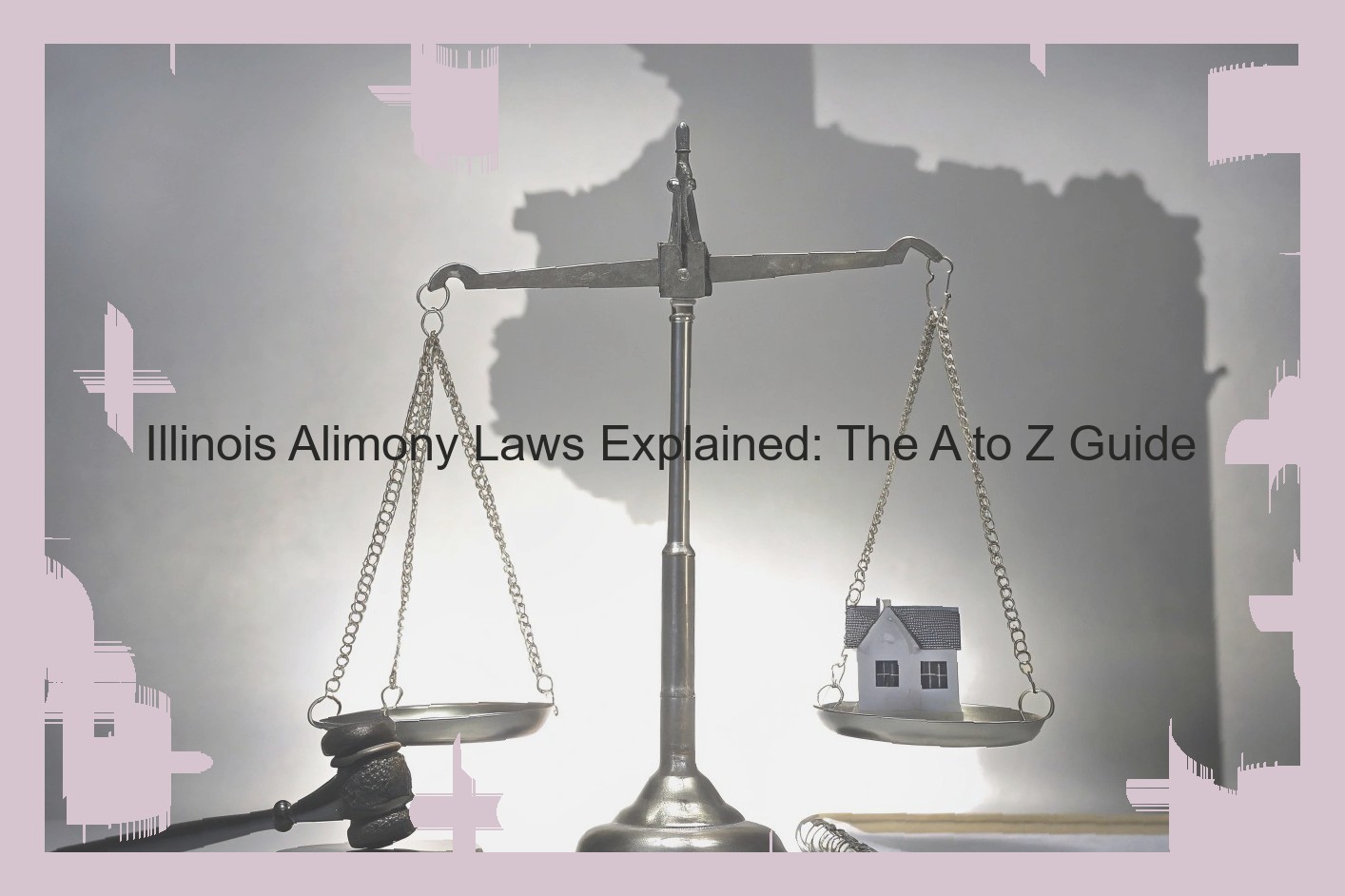Illinois Alimony 101
In the context of divorce, the most common question we hear couples ask is whether spousal support will be ordered and, if so, how much. Legally known as maintenance in Illinois, this financial support is designed to give one spouse the time and opportunity to achieve financial independence. If a couple has children together, alimony can bridge the economic gap between spouses during what could be a lengthy child-rearing period.
Spousal support may also be available in shorter-term marriages. If an individual took time off from school or work to support a spouse or care for children while the other attended school, alimony can help equalize the economic impact . So can the existence of a significant disparity in income: one spouse may have little earning power due to being assigned the bulk of child-rearing responsibilities or because he or she relinquished career opportunities to support a spouse’s education and career.
Alimony is intended to be temporary while one spouse regains his or her footing economically. It can be in place for a few months or several years. If there are children involved, it may be possible for the spouse receiving maintenance to temporarily halt support payments while the children are of a certain age or after a significant life event, such as a marriage.

Different Types of Alimony Available in Illinois
Under Illinois law, there are four possible types of spousal support that a court can award to a spouse during a divorce. Temporary, rehabilitative, permanent, and the new format of spousal maintenance based on a formula created by Public Act 99-764, all have different requirements and factors that must be established in order for the court to be persuaded to award them to a spouse during a divorce. One important point to note, however, is that each of these types of spousal support are contingent on the needs of the recipient spouse and the ability of the other spouse to pay. Basically, spousal support is calculated by taking the needs of the obligee and subtracting the income of the obligor to determine the balance that is needed to be paid. The amount of need will depend on a number of different factors, such as the parties’ standard of living and the income earned during the marriage. In virtually all cases, the court will not award alimony to a spouse in excess of the need. Thus, if the court determines that there is an increased need for additional spousal maintenance, then the court will likely award the amount needed rather than an amount that would be excessive. This is true even for permanent alimony in high net worth marriage situations. The court has a lot of discretion when awarding alimony, and if it makes an error, the appellate court can refuse to modify the judgment if it finds error to be harmless. As with all types of alimony, the courts retain significant discretion when determining whether or not to award spousal maintenance to a spouse, dependant on the financial realities of the family.
A temporary spousal maintenance award is designed to provide the recipient spouse with funds that would allow them to maintain an appropriate quality of life and be able to begin to transition into the dating scene or a new home whilst waiting for the divorce to occur. The amount for a temporary order will take into account a collaborative understanding of the spouses, and is generally taken care of during a "prove-up" hearing. The amount is generally limited to the statutory amount for temporary support of 5%-7% of the obligee’s income minus 40% of the obligor’s income, in addition to child support, upon the incomes of both parties. In some instances where there is a high-net worth, a court may find it appropriate to set temporary maintenance at a higher or lower percentage depending on need.
The rehabilitative award of spousal maintenance is going to be the "rehabilitative" amount that will usually be awarded to a spouse who has a specific plan to use the funds from the spousal support award on education, re-entering the workforce or starting a new business. Usually uplifting, a rehabilitative award is awarded for a specific period of time (up to 5 years but normally 2-3 years) and designed to help the recipient with the adjustment period following the divorce. In the case of a rehabilitative award, the spouse seeking alimony must prepare a plan of sorts that includes a timeline for obtaining the training needed as well as an accurate estimate of how much money will be needed to completely rehabilitate themselves. For this reason, an attorney is not typically required for setting up a rehabilitative award, but it is a good idea to have legal representation so that you can ensure that your plans are practical. The court is attempting to get you back to a standard of living equal to or almost equal to the standard of living you enjoyed while married. If the plan to achieve this end goal is unrealistic, the court will be disinclined to granting a rehabilitative spousal support award.
Permanent spousal support is going to be the amount of alimony awarded during the divorce that is intended to give a person sufficient funds to live comfortably. It is awarded on the assumption that the recipient spouse is never going to remarry and that they will continue to receive this amount in full for the rest of their lives or until the other spouse dies. It will be factored into while the divorce order is still being dictated and will be finalized during the divorce settlement or final ruling by the judge. Permanent alimony is often confused with long-term spousal maintenance, which is a misnomer because spousal maintenance is meant to be for a set longer period of time, but can either be lump-sum or income based payments. The difference is that permanent maintenance follows the standard of living during the marriage, while long-term spousal support may or may not have any relation to the standard of living during the marriage. Permanent spousal support will be based more on the general financial ability of both spouses to pay the requested amount of spousal support and if the request is reasonable.
How Alimony Amounts are Determined
One of the most complicated family law disputes regarding spousal maintenance (alimony) is determining the amount of payments. This simple question is anything but a simple answer. Illinois courts have broad discretion when setting alimony payments. In fact, the legal standard is whether an award of alimony is necessary to support a party’s reasonable needs; this means that the court has almost unlimited power to make an alimony award.
Illinois has codified some of the areas that courts must examine when determining the amount of alimony. The statute provides that the court should consider the following areas in making its alimony determination: Basically, courts are given the power to look at the entire marital estate, and then set alimony payments. Much of the alimony payments are based upon the standard of living during the marriage, and other factors that show the recipients’ financial condition and needs.
Although courts have begun using a more formulaic approach (based upon the gross income of both parties, and percentage of the payor’s income), they still have a wide area of discretion in setting the amount of the alimony. The important point here is that an experienced family law attorney will make sure your case is heard in order for the judge to consider all of the financial aspects of the divorce.
Alimony Modification or Termination
In Illinois, alimony is not a one-size-fits-all payment that is set in stone for the ex-spouses’ future. Changes in either party’s financial circumstances can warrant a modification of alimony. However, whatever alimony agreement or order existed prior to the change in circumstances, may still be enforceable. Before any order can be modified, there must be sufficient legal grounds to seek a reduction in alimony that are outlined in Illinois statute 750 ILCS 5/510 (a).
For example, if you are unable to meet your financial obligations because you lost your job as a result of the recession, or a spouse has new medical expenses that make them financially unviable , an alimony modification may be a possibility. Also, if a spouse fails to pay alimony, and the receiving spouse takes on a new spouse, the second payer has grounds to request a modification of alimony payments because the new spouse could be obligated to cover some of the family bills, thus reducing the burden on the first.
Remarriage of either party can definitely lead to an alimony modification or termination. There may be no need for an ex to pay alimony to his or her former spouse if the receiving party has chosen to marry again. Another circumstance where alimony may cease is when the spouse who receives alimony moves in with a new spouse in a marriage-like living arrangement.
Alimony and Taxes
In Illinois, the tax implications of alimony relate to who can deduct the payments for tax purposes and who must report the income as taxable income. Unlike child support, alimony is still deductible to the paying spouse and reportable taxable income to the recipient spouse. However, under the new federal tax code, which was signed into law on December 22, 2017, for filings after December 31, 2018, any spousal support or maintenance is no longer be deductible to the paying spouse and reportable taxable income to the receiving spouse. This means that Illinois spouses cannot agree to continue with the deductibility trait of spousal support post-December 31, 2018, as it will no longer be available nor will the receiving spouse will be taxed on it as income which may be a good thing for payers of spousal support. On the other side of the equation, if a wife receives $5,000.00 per month in maintenance at the end of the year she will receive a 1099 for Self-Employed Income, Schedule C for Non Wages and will have to show it as income which may not be a good thing for payers of spousal support.
Legal Aid and Resources
Navigating the intricate maze of Illinois alimony laws can be a challenging endeavor. For those grappling with the complexities of spousal maintenance, seeking legal advice from qualified professionals is essential to fully comprehend and effectively respond to their particular situation. Consulting with an attorney experienced in handling divorce and family law matters is highly recommended. Through careful evaluation of the specific circumstances of the case, a legal professional can offer valuable guidance and advice about all pertinent issues that plaintiffs and defendants may be facing. With a comprehensive understanding of the factors and available options, an attorney can provide clarification on how Illinois alimony laws deal with temporary maintenance awards, long-term maintenance orders and amounts, amendments or modifications to maintenance orders, and special considerations for older parties and marriages of short duration.
Legal assistance aside, there are several organizations and resources that offer relevant information about Illinois alimony laws, as well as Illinois divorce and family law in general. The Illinois State Bar Association provides a plethora of research tools, guides and tips useful for divorce, child support, maintenance, retirement plans, and property division. Moreover , the Illinois Department of Healthcare and Family Services (HFS) is a helpful resource for learning about Illinois alimony laws. According to information provided by the HFS, alimony payments are issued through the department’s Office of Child Support Enforcement and as such, HFS has complete record of all alimony disbursements paid by non-custodial parents.
In addition to being able to provide individuals with useful information about Illinois alimony laws, along with necessary legal advice, many Illinois organizations focus on certain aspects of family law. For example, the Illinois Council Against Domestic Violence (ICADV) strives to provide effective legal representation for survivors of domestic violence or non-consensual sex. The ICADV not only refers individuals to competent service providers, but also seeks to provide necessary emergency shelter to those who confront violence. More than 30 domestic violence shelters are members of the ICADV that work together to provide victims of domestic violence in Illinois the necessary safety and security they require. The Illinois Pregnancy and Parenting Support Network (IPPSN) aims to enhance pregnancy and parenting services throughout Illinois. The IPPSN also strives to facilitate access to alternative resources and help improve overall services for pregnant and parenting teens.



